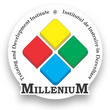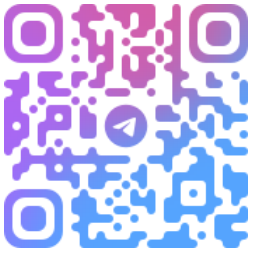Organizații vizate:
Anunțuri de Angajare
- Detalii
- Categorie: Angajări
The Creative Industries Association In Moldova (COR) Hires Trainers In The Game Design Specialty
Informațiile prezentate în articolul de mai jos pot să nu mai fie actuale sau să nu mai reflecte activitățile și programele curente. Anunțul este păstrat în arhivă pentru a asigura transparența și accesul public la informațiile despre inițiativele și proiectele implementate anterior.
01. PROJECT OVERVIEW
The Creative Industries Association in Moldova (COR) plays a crucial role in the successful implementation of the Moldova Future Technologies Activity (FTA) projects designed to continue the legacy of sector competitiveness programming in Moldova, established by USAID and the Government of Sweden. Within the hierarchical structure of the project, COR is tasked with the ground-level execution of the initiatives, which includes responsibilities such as making critical hires, managing staff, and ensuring that day-to-day operations are in line with the broader goals set forth by USAID and Sweden and facilitated through the FTA framework.
COR project hires trainers/lectures in the Game Design Specialty for next courses:
- Development of Virtual Reality applications in Unity;
- Environment and light;
- Interface design for interactive environments in Virtual Reality;
- Games architecture;
- Game Design Workshops II (Storytelling & Unity);
- Game Design Workshops IV;
- Game Design I (Introduction to Game Engines and Narrative Design);
- Game Design III (Gameplay Mechanics & Level Design);
- Digital Studies II (Fundamentals of 3D Modeling in Blender & Maya);
- Digital Studies IV (Asset workflow: 3D Sculpting to Game Engine);
- Initiation practice in the specialty;
- Image concept.
02. POSITION DESCRIPTION
COR, ‘Professions of the Future’ project - implemented by COR with the assistance of the Ministry of Education and Research of the Republic of Moldova, with the support of the Future Technologies Activity (FTA), financed by USAID and Sweden - implemented at the Moldova State University, Faculty of Mathematics and Computer Science, Moldova Technical University, Faculty of Design, Moldova Pedagogical University “Ion Creanga”, Faculty of Fine Arts and Design, for the training of students in the Game Design higher education programs.
03. PRINCIPAL DUTIES AND RESPONSIBILITIES
The trainer's responsibilities will be based on 4 Deliverables implemented in the training and education process during academic year 2023/2024, namely:
- conducting training in Animation Specialties /Deliverable no.1
- Development of Virtual Reality applications in Unity (65 academic hours – March/May 2024);
- Environment and light (30 academic hours – March/May 2024);
- Interface design for interactive environments in Virtual Reality (60 academic hours – March/May 2024);
- Games architecture (65 academic hours – March/May 2024);
- Game Design Workshops II (135 academic hours – March/May 2024);
- Game Design Workshops IV (150 academic hours – March/May 2024);
- Game Design I (90 academic hours – March/May 2024);
- Game Design III (90 academic hours – March/May 2024);
- Digital Studies II (90 academic hours – March/May 2024);
- Digital Studies IV (90 academic hours – March/May 2024);
- Initiation practice in the specialty (60 academic hours – March/May 2024);
- Image concept (90 academic hours – March/May 2024).
- organizing a trainer training (ToT/ 12 hours) for each course/Deliverable no. 2, namely:
- Development of Virtual Reality applications in Unity;
- Environment and light;
- Interface design for interactive environments in Virtual Reality;
- Games architecture;
- Game Design Workshops II;
- Game Design Workshops IV;
- Game Design I;
- Game Design III;
- Digital Studies II;
- Digital Studies IV;
- Initiation practice in the specialty;
- Image concept.
- developing the curricula for each taught course, namely for / Deliverable no.3, namely:
- Development of Virtual Reality applications in Unity;
- Environment and light;
- Interface design for interactive environments in Virtual Reality;
- Games architecture;
- Game Design Workshops II;
- Game Design Workshops IV;
- Game Design I;
- Game Design III;
- Digital Studies II;
- Digital Studies IV;
- Initiation practice in the specialty;
- Image concept.
- developing the Course Support (teaching material for students) Deliverable no. 4, namely:
- Development of Virtual Reality applications in Unity;
- Environment and light;
- Interface design for interactive environments in Virtual Reality;
- Games architecture;
- Game Design Workshops II;
- Game Design Workshops IV;
- Game Design I;
- Game Design III;
- Digital Studies II;
- Digital Studies IV;
- Initiation practice in the specialty;
- Image concept.
04. QUALIFICATIONS
- higher education, bachelor's degree or equivalent in the field of animation and/or game design – natural person;
- at least 3 years of professional experience in the fields relevant to teaching;
- excellent communication and interaction skills with different categories of people;
- responsibility, professionalism, ability to work in a team, focus on results, learn and develop continuously, solve problems and work with minimal supervision;
- excellent command of the Romanian language (including excellent writing skills), knowledge of English and Russian;
- experience in developing didactic materials (curriculums, agendas, course materials).
05. APPLICATION INSTRUCTIONS
The offers, drafted in Romanian, are to be sent in electronic format to the address educatie@cor.md by April 15, 2024, at 5:00 p.m., and must contain (scanned copies):
- the extract from the state register certifying the registration of the bidder - economic agent or the identity card of the bidder- natural person;
- the financial offer;
- the CVs of the expert/experts and documents confirming their qualifications (diplomas, licenses, certifications), specifying 2 reference persons and contact details (phone, email, position);
Possible clarifications can be requested at the email address educatie@cor.md.
COR is an equal opportunity employer and does not discriminate in its selection and employment practices on the basis of race, color, religion, sex, national origin, political affiliation, sexual orientation, gender identity, marital status, disability, genetic information, age, membership in an employee organization, or other non-merit factors.









